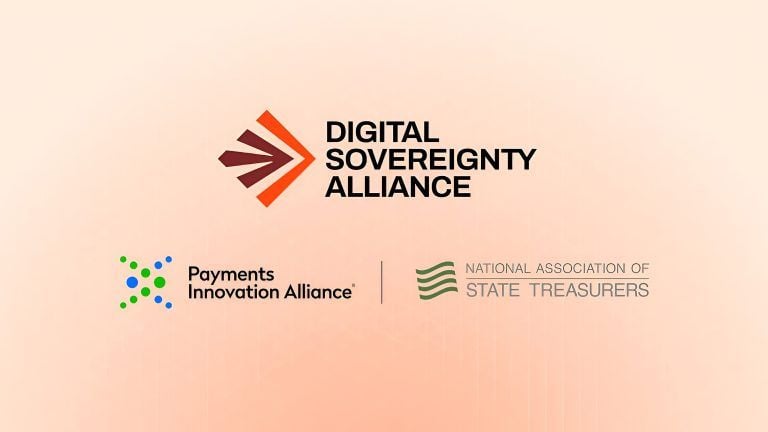Bitcoin, the first cryptocurrency, is a topic of debate and speculation in the financial world. Bitcoin has continually demonstrated endurance and growth since its creation, despite its well-known price volatility and occasional setbacks.
For starters, Bitcoin's allure stems from its scarcity and cyclical halving events. It is a deflationary digital asset with a predefined supply cap of 21 million Bitcoins. This scarcity distinguishes it from ordinary fiat currencies, which central banks can produce at will. The occurrence of Bitcoin halving events every four years slows the production of new Bitcoins. Historical data shows that these halvings are frequently followed by significant price increases as the reduced supply collides with continuing demand.
BTC: Inflation and Diversification
Another important part of Bitcoin's attractiveness is its capacity as an inflation hedge. Many people regard Bitcoin, often known as "digital gold," as a store of value analogous to precious metals. During times of economic uncertainty and inflationary pressures, investors seek safe havens to protect their assets. With its decentralized architecture and restricted supply, Bitcoin appears as an appealing option for both individual and institutional investors seeking to protect their assets from the corrosive consequences of inflation.
Portfolio diversification is a popular technique, and Bitcoin has established itself as an asset class with negligible correlation to traditional financial markets. Because of this lack of correlation, Bitcoin's price moves are frequently independent of stock markets, bonds, and other traditional investments. As a result, Bitcoin can be a valuable component of a well-diversified portfolio, thereby lowering total risk.
On BTC’s liquidity and “digital gold” claims
Bitcoin's liquidity and accessibility have improved dramatically over the years. Investors now have easier access to buying, selling, and trading Bitcoin thanks to the emergence of cryptocurrency exchanges and trading platforms. Furthermore, the growing acceptance of Bitcoin by conventional financial institutions, including several investment funds, adds to its credibility and accessibility to a wider audience.
The increasing acceptance of Bitcoin as "digital gold" has aided its adoption by institutional investors and enterprises. Some major corporations have even designated a portion of their corporate coffers to Bitcoin as a store of value and a hedge against currency depreciation. This institutional acceptance not only verifies Bitcoin's status, but it also injects significant wealth into the cryptocurrency market.
BTC’s underlying blockchain tech and other factors to consider
Another component that contributes to Bitcoin's value proposition is its underlying technology, blockchain. Blockchain technology provides transparency, security, and immutability, making it appealing for purposes other than bitcoin. This adaptability has fueled the creation of decentralized finance (DeFi) systems, non-fungible tokens (NFTs), and smart contracts, reinforcing Bitcoin's position as a basic component in the larger blockchain ecosystem.
Geopolitical concerns also contribute to Bitcoin's popularity. Bitcoin provides an alternate means of protecting wealth and performing cross-border transactions in nations afflicted by economic insecurity, capital controls, or hyperinflation. Citizens in such places frequently turn to cryptocurrencies as a lifeline for asset protection and international trade.
The Bitcoin ecosystem's constant development and innovation are critical factors enabling its continued growth. Developers are always working to improve the network's scalability, security, and functionality. This dedication to growth guarantees that Bitcoin remains relevant and responsive to changing market demands.
Furthermore, as a decentralized digital currency, Bitcoin transcends territorial boundaries. It operates independently of any single government or central authority, making it resistant to censorship and resistant to meddling. This characteristic appeals to persons who desire financial independence and autonomy.
Bitcoin's Role in Achieving Financial Inclusion
Digital technology has undoubtedly revolutionized the financial industry, enabling fintech and big tech companies to compete with traditional banks and broaden the scope of financial services. Amid this transformative landscape, digital currencies, and, in particular, Bitcoin has emerged as a force for achieving greater financial inclusion.
Bitcoin operates on a decentralized blockchain network, accessible to anyone with an internet connection. This decentralized nature makes BTC available to individuals in regions lacking traditional financial infrastructure. With a smartphone and internet access, people worldwide can participate in the Bitcoin economy, potentially bridging the financial inclusion gap.
In fact, traditional financial services often involve high fees and transaction costs, limiting their appeal to low-income individuals. Bitcoin's peer-to-peer nature, on the other hand, reduces these costs significantly, making it an affordable alternative for remittances, payments, and cross-border transactions, especially in regions where fees can be prohibitively high.
Bitcoin also allows users to have full control over their finances, promoting self-reliance and independence. This can be particularly empowering for those who may not have access to traditional banking services. BTC holders have the ability to send and receive funds without the need for intermediaries, offering financial freedom to the unbanked and underbanked.
Moreover, as observed during the COVID-19 pandemic, digital payments played a crucial role in helping people cope with social distancing and lockdowns. Bitcoin's decentralized nature ensured that it remained accessible when centralized systems faced disruptions. This resilience underlines Bitcoin's potential to provide financial services in even the most challenging circumstances.
BTC also facilitates cross-border financial interactions with ease. This can be particularly transformative for people in remote or underprivileged regions, as it enables access to a global economy, offering new opportunities for trade and commerce.
Lastly, Bitcoin offers a degree of financial privacy while maintaining a transparent public ledger. This can be appealing for individuals who value anonymity and security in their financial transactions. Enhanced security and privacy can encourage participation among those who are wary of traditional banking systems.
Conclusion
It is critical to recognize that, while Bitcoin has enormous growth potential and has received a lot of attention, it is still a speculative asset with inherent risks. Price volatility, regulatory uncertainty, and vulnerability to market sentiment are all aspects to consider.
Bitcoin's enduring appeal and growth potential are supported by a number of factors, including its limited supply, role as an inflation hedge, diversification benefits, liquidity, institutional adoption, technological advancements, and use in geopolitically challenging environments. As Bitcoin matures and evolves, it will almost certainly remain a topic of conversation in the financial sector, both for its distinctive characteristics and its potential to influence the future of finance. Nonetheless, investors must be aware of the risks connected with Bitcoin's volatile nature and regulatory uncertainties.
This article was written by Pedro Ferreira at www.financemagnates.com.
You can get bonuses upto $100 FREE BONUS when you:
💰 Install these recommended apps:
💲 SocialGood - 100% Crypto Back on Everyday Shopping
💲 xPortal - The DeFi For The Next Billion
💲 CryptoTab Browser - Lightweight, fast, and ready to mine!
💰 Register on these recommended exchanges:
🟡 Binance🟡 Bitfinex🟡 Bitmart🟡 Bittrex🟡 Bitget
🟡 CoinEx🟡 Crypto.com🟡 Gate.io🟡 Huobi🟡 Kucoin.


















Comments